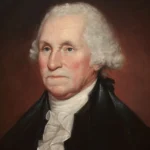
Henry David Thoreau, born on July 12, 1817, in Concord, Massachusetts, was a 19th-century American philosopher, essayist, and naturalist. Renowned for his transcendentalist philosophy, Thoreau’s life was a tapestry woven with diverse threads of literature, philosophy, nature exploration, and social activism. From his seminal work “Walden; or, Life in the Woods” to his essays on civil disobedience, Thoreau’s legacy extends far beyond his relatively short life. In this exploration of 25 historical facts and numerical trivia, we delve into key aspects of Thoreau’s life, revealing the intricate layers that shaped this influential figure and continue to resonate in the realms of literature, philosophy, and environmentalism.
Birth and Family Background:
Henry David Thoreau was born on July 12, 1817, in Concord, Massachusetts. He was the third of four children in the Thoreau family. His father, John Thoreau, was a pencil maker, and his mother, Cynthia Dunbar Thoreau, was a strong influence on his early education. Henry’s upbringing in a family of modest means greatly impacted his later views on simplicity and self-reliance.
Harvard Education:
Thoreau entered Harvard College in 1833, where he studied various subjects including classics, mathematics, and philosophy. He was an avid reader and developed a keen interest in literature and the natural sciences during his time at Harvard. Despite his academic success, he was known for his independent thinking and occasionally challenging the traditional curriculum.
Friendship with Ralph Waldo Emerson:
Thoreau’s friendship with the transcendentalist philosopher Ralph Waldo Emerson played a pivotal role in shaping his intellectual and philosophical outlook. Emerson became a mentor and a close friend to Thoreau, influencing him with his ideas on individualism, nature, and the divinity of the self. This friendship played a crucial role in Thoreau’s intellectual development.
Walden Pond Experiment:
In 1845, at the age of 27, Thoreau embarked on a two-year experiment in simple living. He built a small cabin near Walden Pond on land owned by Emerson, where he aimed to live deliberately and explore a life of voluntary simplicity. Thoreau’s reflections on this period were later compiled in his famous work, “Walden; or, Life in the Woods,” published in 1854.
Civil Disobedience and Resistance to Injustice:
Thoreau was an advocate of civil disobedience and nonviolent resistance to unjust laws. In 1849, he delivered a lecture titled “Resistance to Civil Government,” which later became known as “Civil Disobedience.” Thoreau’s essay had a profound impact on political and social movements, including Mahatma Gandhi’s philosophy of nonviolent resistance.
Surveying and Naturalist Explorations:
Thoreau worked as a land surveyor to support himself financially. His work involved extensive travel, and during his surveys, he meticulously documented the flora and fauna of the region. Thoreau’s observations contributed significantly to the field of natural history, and his writings on local plants and wildlife remain valuable to ecologists and botanists.
Thoreau’s Literary Works:
Apart from “Walden,” Thoreau authored several essays, articles, and books, showcasing his diverse interests and talents. “A Week on the Concord and Merrimack Rivers” (1849), “The Maine Woods” (1864), and “Cape Cod” (1865) are among his notable works. Thoreau’s writings often blended philosophy, nature observation, and social commentary.
Influence on Environmentalism:
Thoreau is considered a precursor to the modern environmentalist movement. His profound connection with nature and advocacy for preserving wilderness areas had a lasting impact on environmental thinkers and conservationists. Thoreau’s work laid the groundwork for the appreciation of nature as an integral part of human existence.
Thoreau’s Death and Legacy:
Henry David Thoreau died on May 6, 1862, at the age of 44, succumbing to tuberculosis. Despite his relatively short life, Thoreau’s ideas have had a lasting influence on literature, philosophy, and environmental thinking. His legacy extends beyond his written works, inspiring generations of individuals to embrace simplicity, self-reliance, and a deeper connection with nature.
Thoreau’s Impact on Transcendentalism:
Thoreau, along with Emerson and other transcendentalists, played a crucial role in shaping the transcendentalist movement in the 19th century. Their emphasis on individual intuition, the inherent goodness of people, and the spiritual significance of nature had a profound impact on American literature and philosophical thought, leaving an enduring mark on intellectual history.
Thoreau’s Interest in Eastern Philosophies:
Thoreau was deeply fascinated by Eastern philosophies, particularly Hindu scriptures and the Bhagavad Gita. His readings in these areas influenced his views on spirituality, non-materialism, and the interconnectedness of all living beings. Thoreau’s exploration of Eastern thought added a unique dimension to his transcendentalist philosophy.
Thoreau’s Walking Expeditions:
Thoreau was an avid walker and believed in the therapeutic and spiritual benefits of walking in nature. His essay “Walking,” published posthumously in 1862, delves into the art of sauntering and its profound impact on the human mind and soul. Thoreau’s appreciation for walking as a contemplative practice showcased his holistic approach to life.
Community Engagement and Social Critique:
While often associated with solitude and individualism, Thoreau was actively engaged in his community. He participated in social reform movements, including abolitionism and the anti-slavery movement. Thoreau’s essays and lectures frequently critiqued societal norms, emphasizing the need for personal responsibility and collective action in the face of injustice.
Thoreau’s Experiment with Fasting:
In 1860, Thoreau undertook a significant experiment in fasting, abstaining from food for several days. This self-imposed deprivation aimed to explore the limits of human endurance and the connection between physical and spiritual well-being. Thoreau documented this experience in his essay “Fasting,” offering insights into the nature of desire and self-discipline.
Thoreau’s Engagement with Native American Culture:
Thoreau exhibited a deep interest in Native American culture, particularly the indigenous people of New England. He studied their customs, languages, and ecological practices. Thoreau’s observations reflected his admiration for the Native American way of life, emphasizing harmony with nature and sustainable living practices.
Thoreau’s Views on Technology and Industrialization:
Thoreau was critical of the increasing industrialization and technological advancements of his time. He believed that rapid progress came at the cost of a deeper connection to nature and a more meaningful existence. Thoreau’s concerns about the impact of technology on the environment and human well-being resonate with contemporary discussions on sustainability.
Thoreau’s Experiment with Time Perception:
In an intriguing experiment, Thoreau measured time not by the conventional clock but by observing natural phenomena. His journal entries often noted the rising and setting of the sun, blooming flowers, and other natural events. This unique approach to timekeeping reflected Thoreau’s desire to live in harmony with the natural rhythms of the world.
Thoreau’s Advocacy for Animal Rights:
Thoreau’s love for nature extended to a concern for the welfare of animals. He spoke out against cruelty to animals and advocated for their rights and ethical treatment. Thoreau’s writings on the subject predated the modern animal rights movement, emphasizing the interconnectedness of all living beings.
Thoreau’s Influence on Modern Minimalism:
Thoreau’s philosophy of simplicity and intentional living had a profound impact on the modern minimalism movement. His emphasis on reducing material possessions, living deliberately, and focusing on essential aspects of life resonates with contemporary minimalists seeking a more meaningful and intentional existence.
Thoreau’s Correspondence with Walt Whitman:
Thoreau and the renowned poet Walt Whitman exchanged letters, showcasing a fascinating intellectual exchange between two influential literary figures of the 19th century. Their correspondence touched on topics such as nature, individualism, and the role of the poet in society. The letters provide a glimpse into the meeting of two distinct yet interconnected literary minds.
Thoreau’s Views on Education:
Thoreau held unconventional views on education, challenging the traditional educational system. He believed in experiential learning and advocated for an education that emphasized personal growth, critical thinking, and a deep connection with nature. Thoreau’s thoughts on education continue to inspire alternative approaches to learning.
Thoreau’s Interest in Mysticism:
Thoreau explored mysticism and the transcendental experience, seeking a deeper understanding of the spiritual dimensions of existence. His journals contain reflections on moments of heightened awareness and communion with nature, demonstrating an interest in mysticism that added a mystical touch to his transcendentalist philosophy.
Thoreau’s Physical Dimensions:
Standing at approximately 5 feet 8 inches tall, Thoreau had a lean and wiry frame. His physical attributes, while seemingly unremarkable, reflected a life dedicated to simplicity and a rejection of excess. Thoreau’s stature mirrored his belief in the importance of a balanced and unencumbered existence.
Thoreau’s Observation of Seasons:
Thoreau was a keen observer of seasonal changes and meticulously documented the natural progression of flora and fauna throughout the year. His detailed observations, recorded in journals and later published works, provided valuable insights into the cyclical patterns of nature and the interconnectedness of all living things.
Thoreau’s Legacy in Popular Culture:
Henry David Thoreau’s legacy extends beyond literature and philosophy, influencing various aspects of popular culture. His ideas on simplicity, environmentalism, and individualism have inspired countless artists, writers, and musicians. Thoreau’s impact can be seen in contemporary works that draw upon his principles to address issues of modern living and societal values.
Frequesnly Asked Questions:
What are 3 significant things about Thoreau?
Three Significant Things About Thoreau:
Transcendentalist Philosophy: Thoreau was a central figure in the transcendentalist movement, which emerged in the 19th century and emphasized the inherent goodness of people, the importance of self-reliance, and a deep connection with nature. Thoreau’s transcendentalist beliefs permeate his writings and shaped his unconventional lifestyle.
Walden Pond Experiment: Thoreau’s two-year experiment in simple living at Walden Pond is a defining aspect of his life. Living deliberately in a small cabin he built himself, Thoreau aimed to strip away the non-essential aspects of life to discover its true essence. This experiment resulted in his famous work, “Walden; or, Life in the Woods.”
Civil Disobedience: Thoreau’s essay “Resistance to Civil Government,” later known as “Civil Disobedience,” laid the groundwork for civil disobedience as a form of protest against unjust laws. His ideas influenced pivotal figures such as Mahatma Gandhi and Martin Luther King Jr., making Thoreau a key figure in the history of nonviolent resistance.
What was Henry David Thoreau’s beliefs?
Thoreau’s beliefs were rooted in transcendentalism, emphasizing the divinity of the individual, the importance of self-reliance, and a profound connection with nature. He believed in living a life of simplicity and intentional purpose, free from the constraints of societal expectations. Thoreau’s writings also reflect his strong stance against injustice, advocating for civil disobedience as a moral response to unjust laws.
What is Thoreau’s most famous poem?
Henry David Thoreau is not widely recognized for his poetry; however, one of his well-known poems is “Sympathy,” also known as “I Sympathize with the Winter Wind.” In this poem, Thoreau expresses his empathy with the natural world, particularly the winter wind, embodying his deep connection with the elements and the seasons.
What are Thoreau’s main ideas?
Thoreau’s main ideas revolve around simplicity, self-reliance, and a harmonious relationship with nature. Some of his key concepts include:
Simplicity and Intentional Living: Thoreau advocated for a simple and deliberate lifestyle, encouraging individuals to focus on the essential aspects of life and minimize material possessions.
Individualism: Thoreau believed in the inherent goodness of individuals and the importance of following one’s conscience. He emphasized the need for self-discovery and reliance on personal intuition.
Nature as a Source of Wisdom: Thoreau regarded nature as a teacher and source of profound wisdom. His writings often reflect a deep appreciation for the natural world, encouraging a spiritual connection with the environment.
Civil Disobedience: Thoreau’s essay on civil disobedience underscored the moral duty to resist unjust laws. He argued for individual conscience as a guiding force in determining whether to comply with or resist oppressive government policies.
These ideas collectively form the foundation of Thoreau’s philosophy and continue to influence discussions on environmentalism, simplicity, and individual freedom.









